Iraqi refugees come to terms with settling in the country responsible for making Iraq uninhabitable after the 2003 invasion.
When “Dilan” left Iraq to come to Texas in 2012 as a refugee, he was struck by how he could head to the grocery store or walk down a street without looking over his shoulder to see if someone was following him.
“I felt safe,” says the thirty-eight-year-old, who worked for five years as an interpreter for the U.S. military in northern Iraq and doesn’t want his real name used due to potential reprisals against his family, still in Iraq. “Here there is the rule of law, there are organizations and institutions, here you can plan, and follow up on things—back in Iraq, there’s chaos.”
In fiscal year 2014, a total of 2,445 Iraqi refugees were resettled in Texas, the third highest number after California and Michigan, according to the U.S. Office for Refugee Resettlement. Among the myriad challenges these refugees face is one of a more existential nature: making a new home in the country that is responsible for the destruction of their own.
“Being a refugee is not a choice, we didn’t want to have to come,” says fifty-year-old Ayman Attar Bashi, who arrived from Iraq in 2010 after a twelve-year application process. “Before the invasion in 2003, we had a stable life, it was good in Baghdad.”
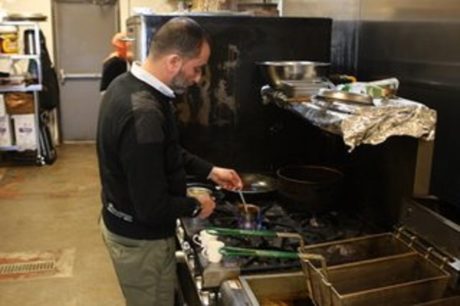
Ayman Attar Bashi making Turkish-style coffee at Pita Shack in Austin, Texas.
The bloody horrors that have waylaid Iraq since the invasion have obliterated thoughts of its glorious past. Iraq was once called the “cradle of civilization” because of its ancient Mesopotamian cities famed for their innovations in science, writing, literature, medicine, theology, and law.
There was a time when travelers were drawn to its breathtaking mountains, vibrant cities, numerous archaeological sites, and a population known for its warm hospitality. But following the invasion, Iraq became increasingly unstable, and by 2006, swathes of the country, including the capital Baghdad, were descending into anarchy.
“There were so many killings and kidnappings, if you or another member of the family went out into the city in the morning, you couldn’t be sure that you would see each other again at the end of the day,” says Raya Thanoon, the wife of Attar Bashi. “The fear from those days was the worst part. I wouldn’t wish it on anyone.”
Both Bashi and Thanoon agree that, given the choice, it would have been better if Saddam Hussein had been left in power.
“At least we had a country and could walk around safely,” Bashi says. Thanoon notes the dreadful ripple effects of the U.S. invasion that have destabilised the whole region, contributing to death and destruction in Syria, Lebanon, Yemen, and Egypt.
Dilan has a different perspective, saying the United States was right to remove Saddam Hussein.
“I know what it is like under a dictator and a genocidal system,” he says. “The United States freed 95 percent of Iraqis. After the invasion, we were hopeful for prosperity and cooperation between the two countries to build a new Iraq.”
What went wrong, he says, is the Americans tasked with rebuilding the country “didn’t think they needed us,” and, as a result of not conferring with Iraqis, made too many bad choices. At the same time, he says, neighboring countries took advantage of the situation—hence he blames Iran more than the United States for what has happened to Iraq.
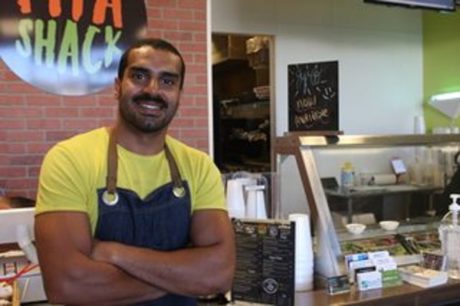
Thirty-one-year-old Adil, an Iraqi refugee who works at Pita Shack and is in the process of joining the U.S. Army.
Thanoon, meanwhile, says her family remains grateful for the second chance the United States has provided. “We separate the actions of the U.S. government back then from the American people,” she says. She and Attar Bashi operate Pita Shack, a one-year-old restaurant serving Middle Eastern fare in the suburbs of Austin.
“We could never have opened a business in Iraq,” says Thanoon, who started the initial catering business that led to the restaurant with only $100.
During a recent lunchtime rush at Pita Shack, a man and woman enter pushing a stroller and take a table. Both are Iraqi refugees. Their food is brought to the table by thirty-one-year-old Adil, who arrived as a refugee in 2012. He is now applying to join the U.S. Army.
Attar Bashi says business is good, helped by Austin’s thriving Iraqi community, which numbers about 750. But whether that community continues to grow will depend on shifting policies toward refugee resettlement both at the state and national levels. Dilan says there has been “zero progress” on the application he submitted in 2015 for family members in Iraq to join him.
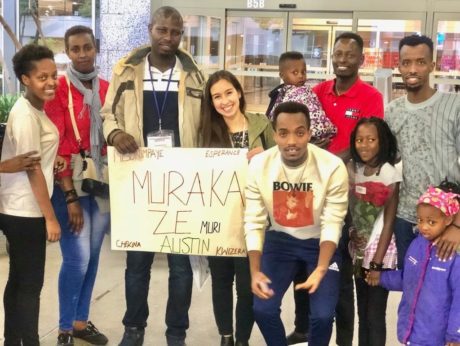
Refugee meet and greets at Texas airports organized by the Refugee Services of Texas.
Texas Governor Greg Abbott announced in January that the state would not accept any refugees in 2020. His decision came after President Donald Trump issued an executive order granting local politicians the power to veto the placement of refugees in their communities.
“Texas has carried more than its share in assisting the refugee resettlement process,” Abbott said in a letter to Secretary of State Mike Pompeo. Since 2010, “more refugees have been received in Texas than in any other state. In fact, over that decade, roughly 10 percent of all refugees resettled in the United States have been placed in Texas.”
Abbott also noted that Texas has faced the brunt of migration issues at the southern border due to a “broken federal immigration system.”
For the time being, Abbott’s decision remains moot after an injunction from a federal judge halted Trump’s executive order from taking effect. But there is an appeal pending, and those working with refugees say they remain concerned about the current climate toward refugees. They see Abbott’s decision as part of a larger nationwide pushback which lumps together all the different categories of displaced people—refugees, migrants, and asylum seekers—as a national security threat and economic drain, while ignoring the many complexities involved.
“Refugees bring enormous benefits to our city and state, from increased diversity to cultural vibrancy to economic growth,” says Ashley Faye, director of development at Refugee Services of Texas, the largest refugee agency in the state. “They’re built into our fabric of life, and they even make communities safer.”
The capacity of 18,000 refugees for 2020 set by President Trump would be the lowest number of refugees resettled by the United States in a single year since 1980, when Congress created the nation’s refugee resettlement program.
Refugees pay an average of $21,000 more in taxes than they receive in public assistance after twenty years in the United States, according to a 2017 study by the National Bureau of Economic Research.
“Refugees quickly become self-sufficient and civically engaged citizens, as well as tax paying citizens,” says Russell Smith, director of Refugee Services of Texas. “They are some of the most entrepreneurial-minded people.”
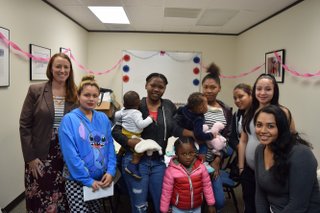
A baby shower for refugees in Houston organized by the Refugee Services of Texas.
Like all refugees who resettle in the United States, Attar Bashi and Thanoon had to pay back the cost of their flights that brought them 7,000 miles from Baghdad to Austin. This helps new arrivals build up their credit score as they set about creating a new life.
“I came to Texas because Iraqi friends here told me the economy was good for work,” Dilan says. “I was used to working, so I didn’t want assistance, I wanted to be self-reliant.”
Dilan, who has worked in manufacturing, security, and interpretation services, says that while Texas has delivered job opportunities there has been a shift in how local Texans view refugees. He thinks people are not as welcoming as when he first arrived.
“Whether it is an application or a personal meeting, as soon as someone finds out I am not from here, I see this shift in their behavior, right there,” Dilan says. “Afterwards, if we meet again, it’s like we never met before.”
(*) James Jeffrey
James Jeffrey is a British journalist who divides his time between America, East Africa, and the UK. His writing appears in various international media.
Source: the Progressive, March 2, 2020
https://progressive.org/dispatches/iraqis-rise-above-build-new-lives-in-texas-jeffrey-200302/


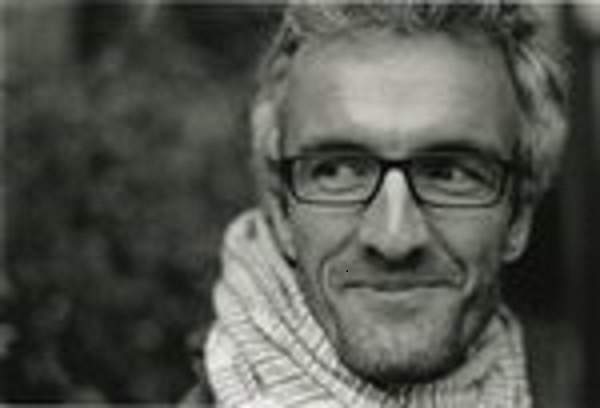



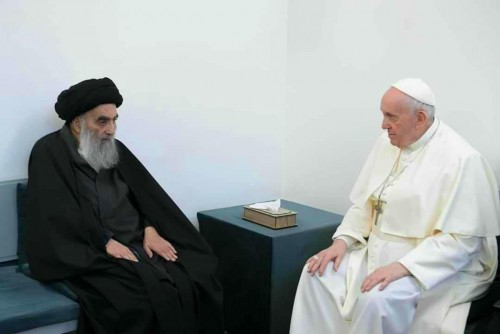

Comment here